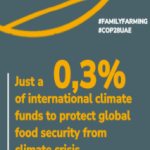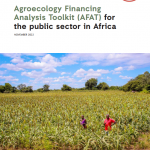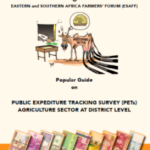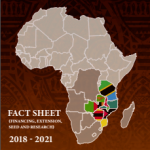Brazil set to assist Tanzania survey biofuel farming areas
12/10/2010
source: http://www.ippmedia.com/
By Beatrice Philemon
Tanzanian and Brazilian experts are expected to carry out a countrywide survey to identify and propose strategic areas that would be allocated for biofuel farming.
“Our intention is to have special areas or land that will be used for biofuel development or farming in the country,” Head of Communications in the Ministry of Energy and Minerals, Aloyce Tesha, told The Guardian in an exclusive interview on Sunday.
He said that the Brazilian Government had agreed to provide the required technical support so that Tanzania could go on carrying out its planned activities.
The ministry requested Brazilian government support after observing that the Latin American country, with more than 30 years in the field had good experience in identifying areas suitable for biofuel production, he said.
“Talks between the Brazilian Government and the Ministry of Energy and Minerals are underway,” he said, noting that the negotiations were however at initial.
He said the ministry decided to embark on the initiative so that it could do away with possible conflicts that may arise once investors embark on full scale biofuel production.
“Besides, we don’t want to see land use conflicts between private investors and the local communities or other land users like in wildlife conservation and tourism investments,” he said.
“If considerable action will not be taken to allocate special areas or land for biofuel farming, our animals will disappear and the local communities will suffer long-lasting environmental problems,” he said.
Already investors have requested for 4 million ha for biofuel investment, especially for jatropha, sugar cane and palm oil countrywide.
Despite the requests, the government said it would continue to carry out the research in order to identify areas that will be set aside for the planting of the crops to be used in biofuel production.
He said also to continue, would be the government move to create awareness to the local communities and journalists to make them know the challenges and opportunities existing in the sector.
People would also be educated on how to grow it in a sustainable manner for them to meet both regulations and required standard.
A team of experts from the Ministry was now in Arusha Region in the awareness creation campaign to the local communities, he said.
The ministry, he said, would also organise seminar for to educate them on biofuel, show them what is going on in foreign countries and what has been done to facilitate the development of the industry in Tanzania.
On the other hand, Emmanuel Sulle and Fred Nelson both from the International Institute for Environment and Development (IIED) based in London who carry out a research on biofuel, land access and rural livelihoods in Tanzania recently said that external interests in biofuel production in African countries is driven largely by the low cost of land and labour in the continet.
They said that investors are targeting many areas of land which are perceived as being unused or marginal in terms of their productivity and agricultural potential.
“With interest in allocating such areas for biofuel increasing, the security of land tenure and access or use rights on the part of local resident communities across rural African landscapes is potentially at risk,” the point out in their research.
Current land tenure in rural Africa is often characterised by high level of insecurity, as a result of the colonial legacy of centralised ownership of land by the state, coupled with weak mechanisms for accountability and enforcement of land rights.
As the commercial potential of marginally productive rural land increases across Africa due to growing interest in biofuels, the risk of large-scale dispossession of customary land belonging to farmers and pastoralists may increase, they observed.
It also indicated that the expansion of biofuel production may lead to other negative impacts such as environmental damage, for example due to deforestation or industrial pollution, and indirect impacts from rising food prices where food crops are cultivated for biofuel production.
“Due to these manifold factors, there is widespread concern on the adverse impacts of commercial biofuel production in rural Africa,” they said.






















